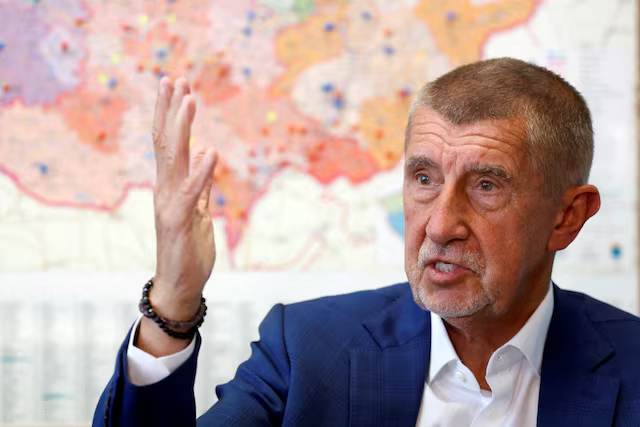News
Czech President Picks Babis to Lead Coalition Talks After Election Win

Czech President Petr Pavel on Monday asked Andrej Babis, the populist leader of the ANO party that won this month’s parliamentary election, to lead talks on forming a new government — marking the next step in the billionaire former prime minister’s return to power.
Since the October 3–4 vote, ANO has been negotiating with the right-wing, eurosceptic Motorists party and the far-right, anti-EU and anti-NATO SPD party. Together, the three parties would control 108 of the 200 seats in the lower house of parliament.
The parties are finalizing a joint government agenda that is expected to include higher fiscal spending, reduced support for Ukraine’s defense against Russia, and stronger opposition to EU migration and climate policies — signaling a sharp shift from outgoing Prime Minister Petr Fiala’s center-right government.
President Pavel said he tasked Babis with leading coalition negotiations following ongoing talks among the parties. He added that he expects to review the draft government program later this week.
Next Steps Toward Forming a Government
Babis’s appointment to officially lead coalition talks represents another step toward a transfer of power and comes ahead of his formal nomination as prime minister-designate.
Babis wrote on X that his goal is to form a government by mid-December. He said he has already briefed the president on parts of the proposed coalition agenda, including foreign policy.
Once the joint program is finalized, the parties will need to agree on ministerial nominations.
ANO officials said last week that the coalition’s draft agenda reaffirms the Czech Republic’s “clear and unquestionable” anchoring in the EU and NATO. The SPD, however, had campaigned for legislation allowing referendums on both institutions.
Pavel, a former NATO general who has focused on foreign policy and security aspects during the coalition discussions, urged the parties to maintain the Czech-led, foreign-funded initiative supplying artillery ammunition to Kyiv — a program Babis has criticized as overpriced and lacking transparency.
Under the constitution, the president appoints the prime minister and cabinet members. Parliament is set to convene on November 3 to elect a new speaker before the outgoing cabinet formally resigns — the earliest point at which a new prime minister could be appointed.
Babis also continues to face scrutiny over potential conflicts of interest linked to his vast food, agriculture, and chemical businesses. Pavel said Babis assured him that he would address those concerns publicly before any formal appointment.
